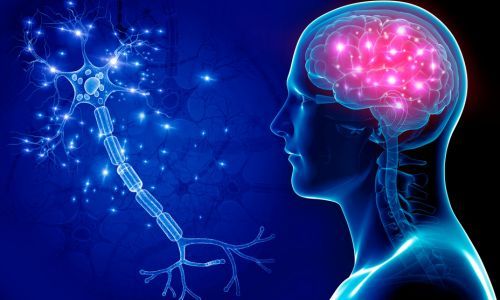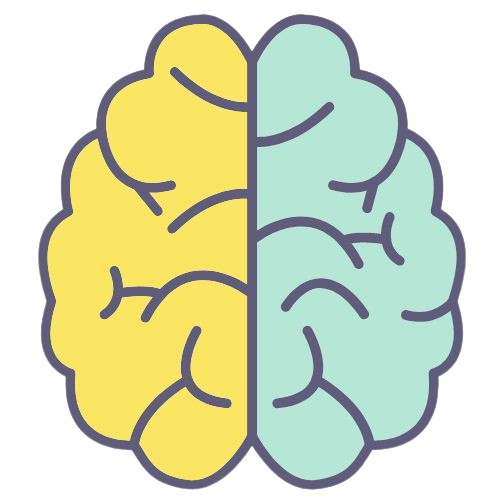
Introduction
Methamphetamine, commonly known as meth is a powerful stimulant drug that has been linked to a variety of serious health risks. But what does meth do to someone who has Attention Deficit Hyperactivity Disorder (ADHD)?
While there is limited research on the effects of meth on people with ADHD, some studies suggest that the drug may have a more pronounced effect on those with the disorder.
For example, one study found that people with ADHD who used meth had higher levels of impulsivity and aggression than those without the disorder.
Additionally, the study found that people with ADHD who used meth were more likely to experience psychotic symptoms, such as hallucinations and delusions.
These findings suggest that meth may have a more pronounced effect on people with ADHD than those without the disorder.

What is ADHD and How Does it Affect People?
Attention Deficit Hyperactivity Disorder (ADHD) is a mental health disorder that affects millions of people around the world. It is characterized by difficulty focusing, impulsivity, and hyperactivity.
People with ADHD often struggle to stay organized, manage their time, and complete tasks. When it comes to the effects of meth on someone with ADHD, the results can be more pronounced than for someone without the disorder.
Studies have shown that meth can increase the symptoms of ADHD, such as impulsivity and hyperactivity, and can also lead to increased risk-taking behavior.
Additionally, meth can interfere with the effectiveness of medications used to treat ADHD, making it more difficult to manage the disorder.
Therefore, it is important for people with ADHD to be aware of the potential risks associated with using meth and to seek professional help if they are considering using the drug.
Here is another article I wrote on ADHD and its effect on children. This is where the most common questions concerning ADHD begin: "What ADHD Means?"

The Effects of Meth on People with ADHD
ADHD and meth–Methamphetamine, commonly known as meth, is a powerful stimulant that can have serious consequences for anyone who uses it. But what does meth do to someone who has Attention Deficit Hyperactivity Disorder (ADHD)?
Studies have shown that people with ADHD are more likely to abuse drugs, including meth, than those without ADHD. This is because people with ADHD may be more likely to seek out drugs to self-medicate their symptoms.
When someone with ADHD takes meth, the effects can be more pronounced than in someone without ADHD. The drug can increase alertness, focus, and energy, but it can also lead to increased impulsivity and risk-taking behavior.
Additionally, the effects of meth on people with ADHD can be more intense and longer-lasting than in those without ADHD, leading to a greater risk of addiction and other long-term health problems.

The Impact of Meth on Brain Chemistry: (brain chemistry - neurotransmitters)
Methamphetamine is a powerful stimulant that can have a significant impact on the brain chemistry of anyone who takes it, but the effects can be especially pronounced in someone who has Attention Deficit Hyperactivity Disorder (ADHD).
Meth can cause an increase in the production of neurotransmitters, such as dopamine and norepinephrine, which can lead to a feeling of euphoria and increased energy.
However, this can also lead to an increase in impulsivity and hyperactivity, which can be especially problematic for someone with ADHD.
Studies have shown that people with ADHD who take meth are more likely to experience negative side effects, such as anxiety, depression, and paranoia.
Additionally, long-term use of meth can lead to permanent changes in brain chemistry, which can further exacerbate the symptoms of ADHD.
It is important for anyone with ADHD to be aware of the potential risks associated with taking meth and to seek professional help if they are considering using it.

The Long-Term Effects of Meth Use on People with ADHD
Methamphetamine use can have serious long-term effects on people with Attention Deficit Hyperactivity Disorder (ADHD). While the short-term effects of meth use are well-known, the long-term effects of meth use on people with ADHD are less understood.
Studies have shown that people with ADHD who use meth are more likely to experience mental health issues such as depression, anxiety, and paranoia.
Additionally, people with ADHD who use meth are more likely to experience cognitive impairments such as memory loss, difficulty concentrating, and impaired decision-making.
Furthermore, people with ADHD who use meth are more likely to experience physical health issues such as increased heart rate, increased blood pressure, and increased risk of stroke.
It is important to note that the long-term effects of meth use on people with ADHD can be even more severe than the long-term effects of meth use on people without ADHD.
Therefore, it is important to be aware of the potential risks associated with meth use for people with ADHD.

Treatment Options for People with ADHD and Meth Abuse
Methamphetamine is a powerful stimulant that can have serious consequences for anyone who abuses it, but the effects can be even more pronounced for someone who has Attention Deficit Hyperactivity Disorder (ADHD).
Studies have shown that people with ADHD who take meth are more likely to become addicted and experience more severe side effects than those without ADHD.
The most common side effects of meth abuse include increased heart rate, increased blood pressure, and insomnia. In addition, people with ADHD who take meth may experience increased anxiety, depression, and paranoia.
When it comes to treatment options for people with ADHD and meth abuse, the most important step is to seek professional help.
A combination of medication, therapy, and lifestyle changes can help to reduce the risk of relapse and improve overall health.
Medications such as antidepressants and antipsychotics can help to reduce symptoms of anxiety and depression, while cognitive behavioral therapy can help to address underlying issues that may be contributing to the addiction.
Additionally, lifestyle changes such as regular exercise, healthy eating, and avoiding triggers can help to reduce the risk of relapse.

Quick Overview of Treatment Options:
it is clear that meth use can have a significant impact on someone who has ADHD. The effects of meth on brain chemistry can be particularly damaging, leading to long-term physical and mental health issues.
It is important to be aware of the risks associated with meth use and to seek treatment if necessary.
Treatment options for people with ADHD and meth abuse include cognitive-behavioral therapy, medication, and support groups.
With the right help, people with ADHD can learn to manage their symptoms and lead healthier lives.
It is essential to remember that everyone is different and that there is no one-size-fits-all approach to treating ADHD and meth abuse.

FAQs: Quick and Short Answers:
What is ADHD?
Attention Deficit Hyperactivity Disorder (ADHD) is a neurodevelopmental disorder that affects a person’s ability to focus, control impulses, and regulate emotions. It is typically diagnosed in childhood and can persist into adulthood.
How does ADHD affect people?
People with ADHD may have difficulty paying attention, controlling their impulses, and managing their emotions. They may also have difficulty with organization, time management, and completing tasks.
What are the effects of meth on people with ADHD?
Meth can have a significant impact on people with ADHD, as it can increase impulsivity and hyperactivity, as well as impair cognitive functioning. It can also increase the risk of developing mental health issues such as depression and anxiety.
How does meth affect brain chemistry?
Meth can cause changes in the brain’s chemistry, leading to an increase in dopamine levels. This can lead to an increase in pleasure-seeking behaviors, as well as an increase in impulsivity and risk-taking behaviors.
What are the long-term effects of meth use on people with ADHD?
Long-term meth use can lead to an increased risk of developing mental health issues, as well as physical health issues such as heart and lung problems. It can also lead to an increased risk of addiction and dependence.
What treatment options are available for people with ADHD and meth abuse?
Treatment options for people with ADHD and meth abuse include cognitive-behavioral therapy, medication, and support groups. Treatment should be tailored to the individual’s needs and should focus on helping them manage their symptoms and reduce their risk of relapse.
Are there any studies on the effects of meth on people with ADHD?
Yes, there have been several studies on the effects of meth on people with ADHD. These studies have found that meth can have a significant impact on people with ADHD, leading to an increase in impulsivity and hyperactivity, as well as impairing cognitive functioning.

Final Thoughts on the Subject:
The effects of meth on someone who has ADHD can be quite different than someone who does not have ADHD.
Studies have shown that people with ADHD who take meth can experience an increase in focus and energy, but this can be accompanied by an increase in impulsivity and risk-taking behavior.
This can lead to dangerous situations and long-term health problems. It is important to note that the effects of meth on someone with ADHD can be more severe than someone without ADHD.
Such, it is important to seek professional help if you or someone you know is considering taking meth.
Ultimately, it is important to understand the risks associated with taking meth, especially for those with ADHD, and to make sure that any decision to take meth is made with the help of a professional. Although, I hope no one would ever consider the need for meth.










